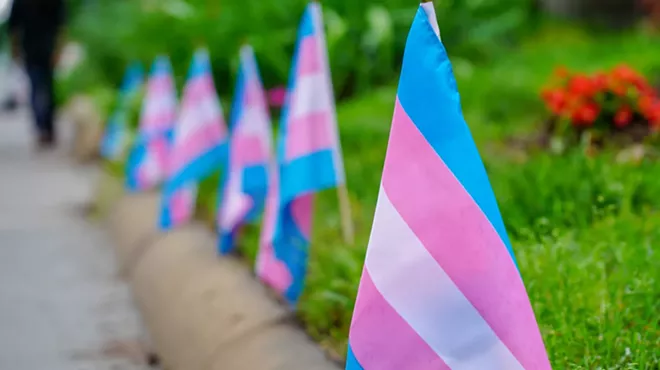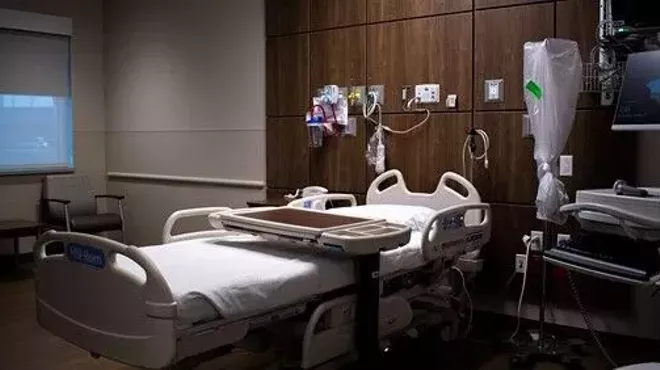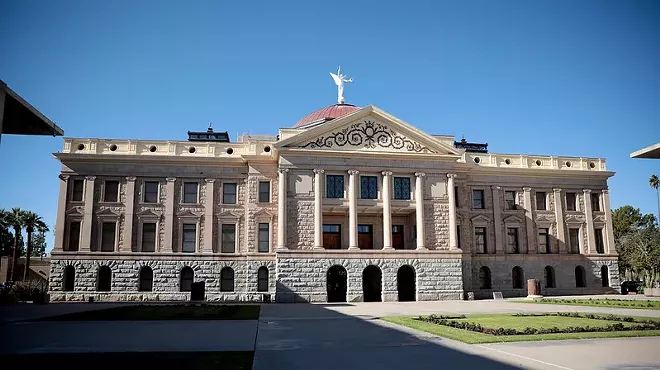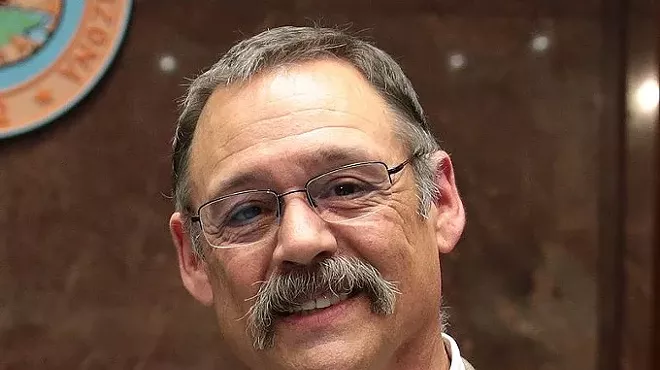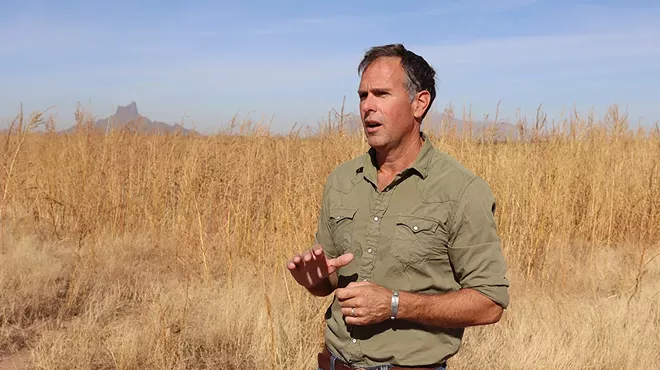Monday, May 11, 2020
Homeland Secrets: Operation Agent Touch
Page 2 of 8
CHAPTER 2‘See something, say something’
It was a little after 1 p.m. on Sept. 20, 2018, when a group of six federal agents and local police detectives entered the lobby of a strip mall massage parlor in Lake Havasu City, a resort and watersports destination on the Colorado River.
“Police search warrant!” they yelled several times, getting no response.
The details of what happened next are included in more than 2,100 pages of police reports, photos and video, as well as HSI and court records obtained by the Howard Center for Investigative Journalism.
The door to the massage parlor’s back area was locked, so a detective kicked it in. In a room to his left, he found a naked man lying face down on a massage table, a used condom by his side. A television monitor in an upper corner of the room showed footage from multiple security cameras, which had alerted the woman who had been in the room to the officers’ presence.
After getting dressed, the man, 65, said it was his second visit in four months to Foot Massage & Spa. Both times, he said, he paid $60 to $80 for women working there to masturbate him.
Fanning out through the rest of the business, other investigators found the woman and a man she identified as her boyfriend huddled in a back office.
The woman, a 45-year-old Chinese national, told an HSI agent translating that she and her boyfriend had arrived in Havasu two days earlier. She said they lived in Utah, but that she often traveled to work in massage parlors, most recently in New Mexico, California and Utah.
At first, she denied performing sex acts at the spa. But when pressed, she admitted that she was masturbating the customer when police and agents arrived.
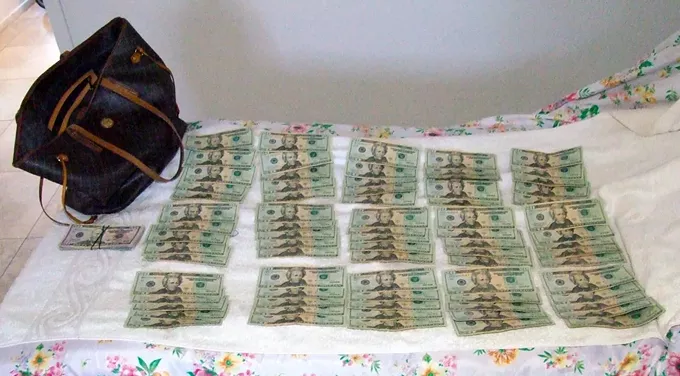
Lake Havasu City Police found large amounts of cash inside A Body Spa during a raid on Sept. 20, 2018. The raid was the culmination of a two-year multiagency sex-trafficking investigation that also netted more than $136,000 in seized assets, most of which was not returned after charges were dropped. (Photo by Lake Havasu Police Department)
Police took her to the H.A.V.E.N. Family Resource Center, a Havasu nonprofit that works with abuse victims, for further interviews to “see if she was a victim of human trafficking and forced labor.”
Details of those discussions weren’t made public, but police said they later were told the woman “does not fit the criteria as a victim who is being trafficked.”
In coordinated raids, a second woman was picked up at A Body Spa, another Havasu massage parlor. She, too, was brought to H.A.V.E.N. for questioning but, according to police reports, her responses were much different.
She said she had been brought to Havasu from the Las Vegas international airport in a white car she described as bearing the Mercedes Benz symbol. For the previous three weeks, she had worked at the massage parlor every day, on average 13 hours and sometimes longer. Most of the time, she did not leave the building during the day and slept on a massage table at night. When she could afford it, she rented a hotel room nearby to shower.
There were some inconsistencies in her story, though. She at first said her boss paid her by check but later that she was never paid and was owed about $1,000. She denied performing sex acts but later admitted to masturbating customers who asked because “she would not make any money” if she refused. She said her boss didn’t know what was happening, then later said she once told her boss about the sex acts and got no reaction.
This woman was deemed a trafficking victim, and H.A.V.E.N. arranged a hotel room for her for the night. The other woman was charged with prostitution and spent the night in the Lake Havasu City Jail.
Sex-trafficking experts say it’s difficult to determine who is and isn’t a victim because the women sometimes are too scared to be truthful, especially when they’re involved in police actions, such as massage parlor raids.
A 2017 report from the national human-trafficking think tank Polaris said traffickers generally rotate the women through a network of parlors every two to six weeks and control them through a combination of physical force, fraud or coercion, such as holding their passports and money, or seeding a fear of arrest and deportation.
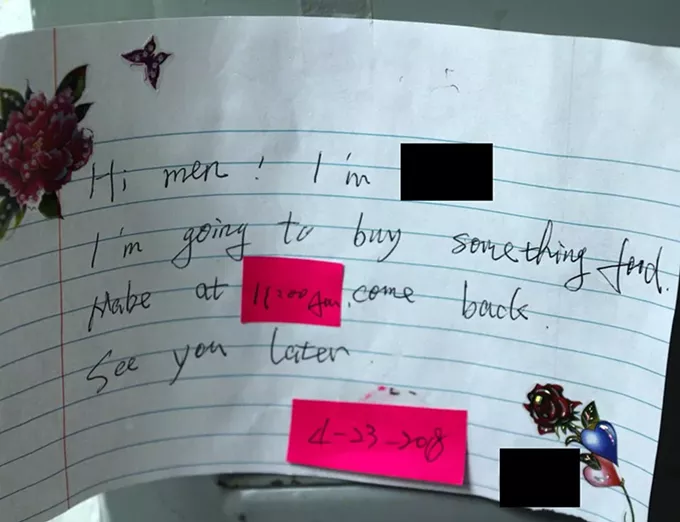
A handwritten note found during a raid of Foot Massage & Spa on Sept. 20, 2018, indicates that a woman who worked there would be back soon. (Photo by Lake Havasu Police Department)
As the raids were underway in Havasu, Bullhead City police 65 miles to the north pulled over Amanda Yamauchi, allegedly for failing to signal a turn. The 47-year-old woman had been on the radar of local authorities for seven months on suspicion of prostitution, sex trafficking and perhaps money laundering.
As two officers approached her white Mercedes SUV, one spotted a young boy in the backseat and said, “Hey, buddy.” It was Yamauchi’s 5-year-old son.
Police ordered Yamauchi out of the car and led her around back to handcuff her. “I don’t want your kid to see what’s going on,” an officer said. “You’re under arrest for prostitution, it’s an ongoing investigation, and we’ll fill you in on that in a little bit.”
The sex-trafficking investigation had begun in May 2016 after police got multiple citizen complaints that massage parlors in Havasu actually were houses of prostitution.
Detectives said they linked Yamauchi to the massage parlors after receiving a tip in February 2018 from someone who used to work for her, who claimed her identity had been misused on a business license. They said Yamauchi was “knowingly operating” four massage parlors that were providing sex acts for money and was linked to the other four businesses.
Havasu and Bullhead City police called in Homeland Security Investigations in April 2018, suspecting that women were being cycled through the businesses and might be victims of human-trafficking, which is one of HSI’s investigative priorities.
Police said they witnessed Yamauchi, a month before her arrest, shuttling Asian women from the Las Vegas international airport to Havasu. She’d had other run-ins with the law, police said, citing a 2012 HSI report describing how Yamauchi was stopped en route to Las Vegas with $31,800 in cash. She told authorities the money was from the sale of her Florida massage business and that she planned to use it to buy a house in Nevada. Police said that wasn’t true and that her Florida parlor had been investigated for prostitution a few months before her cash was seized. They also cited records showing Yamauchi was arrested in California for prostitution in 2002.
“I’ve been watching what you’re doing, where you’re going, who you’re talking with and where you’re living,” Havasu police detective Lorne Jackson told Yamauchi during her interrogation. “I’ve done a whole lot of research and spent a whole lot of time because you wouldn’t be here unless that was true.”
Yamauchi, a U.S. citizen, told police repeatedly that she didn’t run a business at the massage parlors and only rented them out to independent contractors. When asked why her story didn’t match those of the women working at the parlors, Yamauchi said, “they try to get out of trouble” because “they do bad things.”
“I don’t lie. I swear to God. They lie,” Yamauchi pleaded.
The questioning then shifted to allegations that Yamauchi was involved in money laundering. Court records described five occasions on which she deposited and withdrew more than $10,000 at the Wynn Las Vegas casino and a credit union in Henderson, Nevada, in 2018.
“When you're throwing $23,000 down at the Wynn Las Vegas, and then you just pull $23,000 out like you're washing your money, that's called money laundering," Jackson said.
At that point, Yamauchi asked for an attorney.
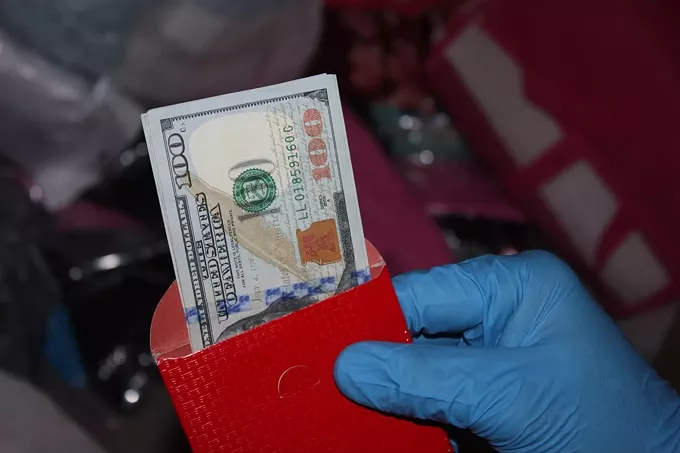
Money found during execution of a search warrant on the home of Amanda Yamauchi in Bullhead City. She was accused of sex trafficking, operating a house of prostitution, money laundering and six other felony crimes, although all charges were later dropped. (Photo by Bullhead City Police Department)
At the Sept. 25, 2018, press conference announcing the investigation’s successful conclusion, police chiefs Dan Doyle of Lake Havasu City and Brian Williamson of Bullhead City appeared with Lon Weigand, the senior HSI official.
“This is a great example of see something, say something,” Doyle said.
Williamson summed up the importance to the two Arizona cities: “It went from a public nuisance, really, to people being rescued from forced servitude, which then has a federal nexus for our homeland security.”
“These are not problems to be ignored,” he continued, “and I think I can speak for all of the law enforcement officials today when I say we will not ignore these issues.”




